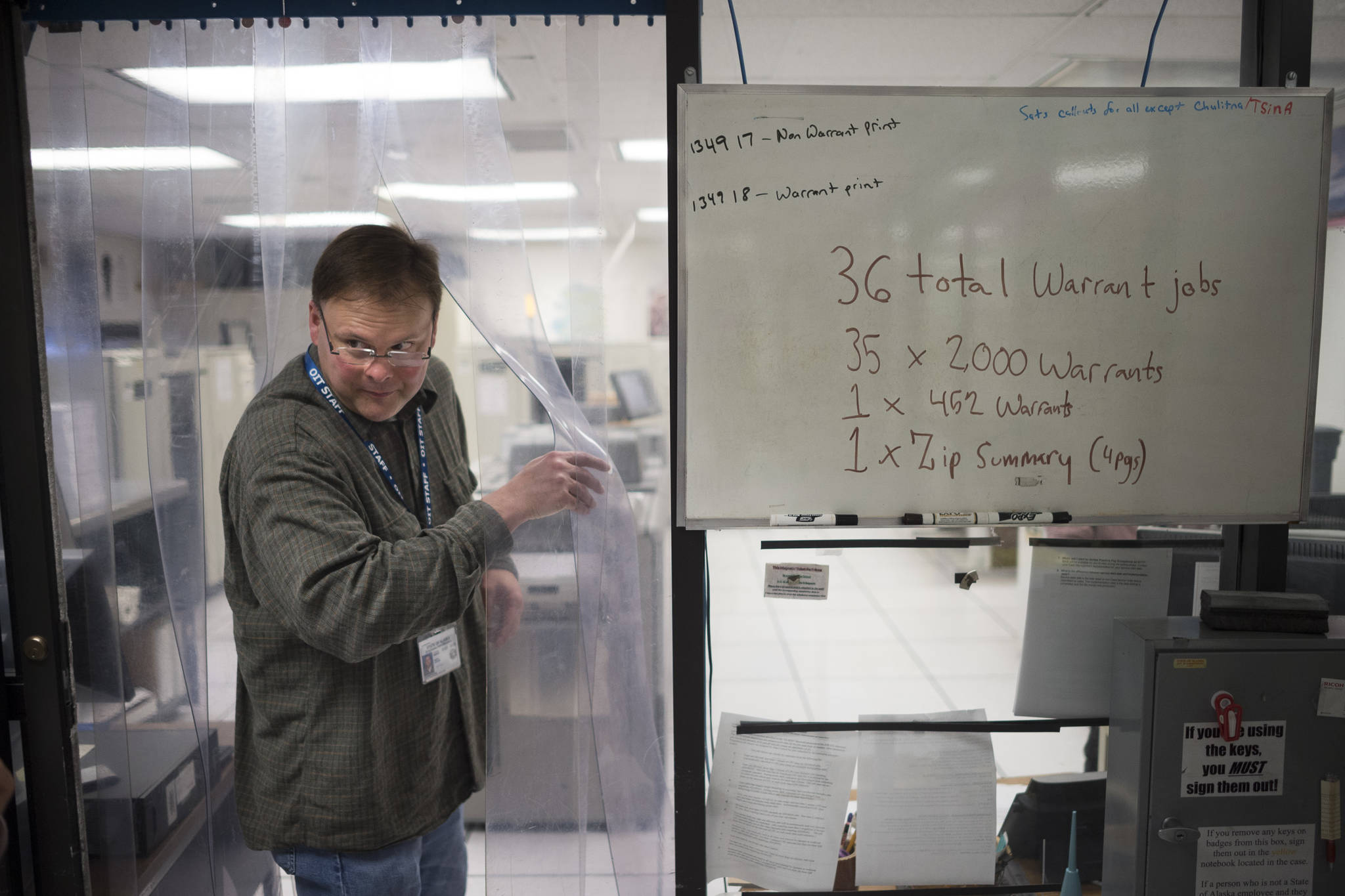With the soft sound of smoothly operating electronics, workers in the State Office Building are printing money.
This week, the thousands of paper checks that pay this year’s $1,600 Permanent Fund Dividend are being printed, double-checked and prepared for the postal service by a handful of workers in a quiet server room.
If Oct. 4 is Alaskan Christmas, Santa’s workshop is a silent space with a handful of elves.
“Ideally, the sound of anything, whether it’s $1 or $1 billion, is nothing,” said Eric Essary, data processing production manager for the state’s information technology department.
IT workers are the ones who run the state’s printers; they have security clearances and the skills to keep the project moving. In a normal month, they print 30,000 to 40,000 checks for regular things like benefits and paying state invoices. This week alone, 70,452 Permanent Fund Dividend checks will flow from those printers. Added to the 523,012 direct deposits, more than $1 billion will leave the state treasury next week, bound for the bank accounts of ordinary Alaskans in $1,600 servings.
This year, the Legislature shrank that serving — without cuts, the dividend would have been almost $3,000 — but regardless of the amount, the checks will flow in regular order this month as they have each fall since 1982.
Anne Weske, interim director of the Permanent Fund Dividend Division, said the process starts when the division finalizes its list of recipients. That happened last week, after months of checking the backgrounds of hundreds of thousands of people who applied for the dividend before the March deadline.
Most Alaskans get their dividends electronically, through direct deposits into their accounts. About 12 percent get their dividends by paper, and that takes a few extra steps. Blank check forms are brought in bulky boxes from a vault to the server room containing the print shop. The paper has to sit for a couple days, adjusting to the temperature and humidity in the room. Fail to do that, and the printer can jam.
Then, in 500-sheet batches, the paper is fed into the printer. Each batch is checked for errors. Every check is examined by a Department of Revenue worker before being re-boxed. The checks are sorted by zip code, to make them easier to mail.
This all takes place behind locked doors, and the checks themselves have security features.
“Every piece of paper is $1,600,” she said.
Weske said the department prosecutes maybe two dozen counterfeiting cases a year, and banks catch those quickly. (A bigger threat is check theft from the mailboxes of apartment residents, she said.)
The print shop has a five-day window to get the checks printed, and at the end of the week, the completed boxes will be loaded onto a cart and wheeled to the State Office Building mailroom to be folded, sealed and addressed on Saturday.
Will Muldoon, a mainframe operator who also operates the printer, will be one of the people wheeling that cart down the hallway with millions of dollars on board.
“It’s a wild feeling,” he said.
Had the @JuneauEmpire come visit the datacenter this afternoon to discuss how the PFD makes it's way into the homes of Alaskans.
It's a neat process and I'm always stoked to be a small part of it. It's really wild to be alone in a rm with >$100M and be the one outputting it all.
— will muldoon (@WillMuldoon) September 25, 2018
• Contact reporter James Brooks at jbrooks@juneauempire.com or 523-2258.

